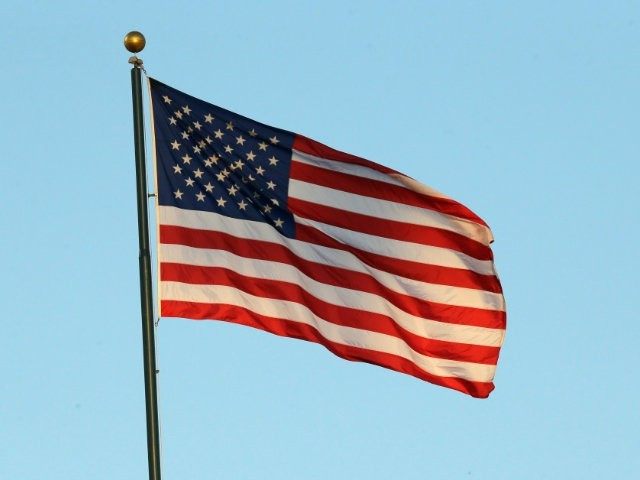Failing is easy. Failing effectively is more difficult.
In her new book, The Up Side of Down, journalist Megan McArdle looks at failure and finds that it isn’t always a negative. You can learn from failure.
Of course, to paraphrase Freud, sometimes a failure is just a failure. So how can people learn to fail well?
First, we need to be allowed to fail. This seems simpler than it is. In modern society, it’s more difficult to fail. Computers look over our shoulders at all times, providing spell-check services, GPS directions, and so forth.
That’s not always good. Email autofill may be a great thing, until it sends your boss a note you didn’t intend him to see. GPS is marvelous, until it sends you down an unplowed road into a snowbank.
As McArdle writes, “Accidents aren’t aberrations that can be avoided simply by designing more safety features into the systems; indeed, since safety features themselves add complexity, they may raise, rather than lower, the chance that something will go wrong.”
Thus, the more complex a system is, the more likely it is that a failure will be catastrophic.
In modern society, of course, much of the complexity in our lives is placed there by governments, supposedly acting to “help” us avoid failure or to “protect” us from failure.
McArdle cites her mother’s health problems. She’s on Medicare, “which is supposed to ensure that she can go to the doctor whenever she feels ill.” Not quite. Because Medicare pays less than private insurance, there’s a system failure built in: It’s difficult to find a doctor who’s excepting new Medicare patients. Her mother had lived in D.C. for five years without finding a PCP. The federal attempt to protect her mother almost killed her.
Or consider welfare policy.
The “War on Poverty” was supposed to help people up, not create a permanent underclass. But that’s what it’s done. The intentions may have been good, but the outcome is an expensive failure.
So, too, with unemployment insurance. The idea sounds good: create a program to protect people as they look for a new job. Yet unemployment benefits–extending almost two years in some states–locked many people into failure. They didn’t need to find a new job, and they didn’t. Until the extended benefits ended. A “new working paper found that the expiration of benefits was responsible for the creation of over 1.8 million jobs,” FOX News reported this year. “Nearly 1 million of those jobs were created by workers who would have otherwise stayed out of the labor force if unemployment benefits had been extended.”
Oddly, McArdle blames Republicans for not extending unemployment. She writes that the end of extended unemployment insurance simply forced people to go on Social Security Disability. “And once you’re on it, there is virtually no chance that you will ever get off,” she writes.
That’s true. But she ignores the real factor driving underemployment: federal intervention in every aspect of American lives.
Want to use a prepaid credit card? The feds are going to step in and “protect” you from doing so. The Americans with Disability Act was intended to protect against discrimination. But it’s turned into an opportunity for lawyers to sue unsuspecting businesses. “Few companies manage to follow all the rules, which are 252 pages long and very precise,” The Economist notes. “In a tour of over 1,500 firms that had been hit with lawsuits in central California, Julie Griffiths of Citizens Against Lawsuit Abuse, an advocacy group, found mostly immigrant-owned family businesses earning between $50,000 and $80,000 a year.”
Those businesses are failing, of course. But it’s the direct result of a federal law. Why bother starting a business, if you’re simply going to be sued out of existence anyway? You cannot fail if you cannot try.
McArdle uses the playground as a metaphor for America today.
“Someone–a regulator, a company, an expert–is supposed to be able to guarantee our perfect safety,” she writes. By removing high monkey bars from playgrounds, for example, “We have made it impossible for children to fall very far—and in so doing, we have robbed them of the joys of climbing high.”
But to the government, we’re all children. To “protect” us from global warming, it wants to regulate power plants out of existence. Hey, who needs power, or energy or jobs, right? We’ve got Uncle Sam looking out for us.
Until it, too, fails. Which is, of course, inevitable.
McArdle writes about a sociologist who spent years studying “the underclass.” Both “she and her subjects regarded the American taxpayer as some sort of delightful natural resource” that could never run out. They’re not alone, of course.
Nobody thinks a Social Security check could bounce, or that a federal bailout could itself go bust. However, the federal government–with its $18 trillion debt–is simply too big to not fail, eventually. That will be a learning experience for many of us, but it’s not likely to be a positive one.
Everyone fails in life. We lose jobs, fail at marriages, fall flat in business. But that doesn’t control our happiness. Being in control does.
“People who believe that they can control their fate are more likely to have happy futures even if they’re wrong about the extent of their control,” McArdle notes. But in a world where governments are attempting to remove all risk, we have less and less control. Every building is taping you, every stoplight is shooting a photo of your car. The NSA is collecting reams of information from your digital footprint. Our society, where you’re free to be whatever you want, feels less and less so each year.
McArdle concludes by advising readers to “diversify your emotional and financial investments. Hedge against the future. Minimize your fixed obligations.” Good advice.
It would also be useful to unshackle yourself from overweening government. Alas, that will be a much more difficult undertaking.

COMMENTS
Please let us know if you're having issues with commenting.